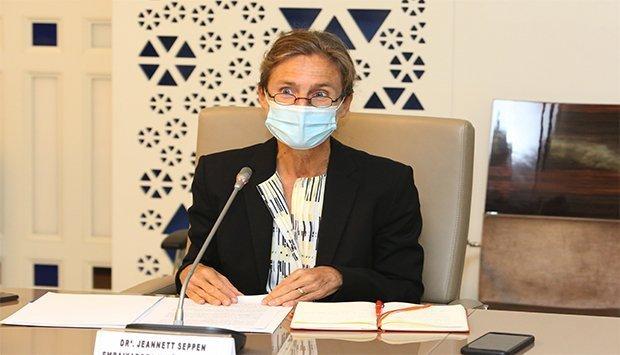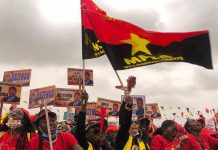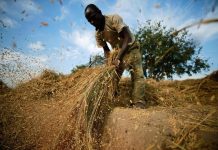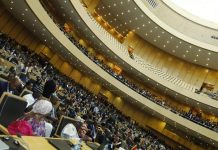Africa-Press – Angola. The European Union ambassador to Angola, Jeannette Seppen, acknowledged, this Wednesday (26), in Luanda, that “Angola is on a good path in terms of Human Rights”, but considered that “there are still things to do”.
Speaking to the press, at the end of the IV Path-Joint Strategic Dialogue, between Angola and the European Union, the diplomat said that the work that still needs to be done is part of this partnership that also includes talking about the steps and advances that have already been given, such as the Local Human Rights Committees.
“We have the impression that things are going well and as partners and friends we are here to accompany and continue to take other steps”, evaluated Jeannette Seppen, for whom gender equality continues to be one of the Executive’s greatest challenges in terms of In addition, he stressed, there are still other challenges, such as “the big issue this year: the general elections”.
The European Union, he assured, is aligned with the themes and with all the opportunities, as well as with the challenges of Angola. In this way, he said, the EU has accompanied the country, through dialogue, through which ideas are shared and that continental organization, through its cooperation program, has responded to these challenges. Minister Francisco Queiroz defended that more should be invested in the consolidation of institutions and in guaranteeing the fundamental rights and freedoms of citizens for the effective realization of Human Rights.
The minister referred that Angola and the EU entered into a more interactive and qualitatively superior dialogue of talks. “It’s not that police situation anymore,” he considered.
In the official’s view, Wednesday’s meeting marked a turning point in the dialogue model, which becomes more interactive, in the sense that the parties present concerns and ideas of cooperation in matters of Human Rights and democracy.
The National Strategy, reinforced, covers democracy and Human Rights and always has democracy and good governance as a backdrop. Based on this, he said, the Angolan Government proposed to the European Union to adapt the Dialogue to the vision of the National Human Rights Strategy, because the EU also has its own strategy on Human Rights and democracy.
Francisco Queiroz recalled that Local Human Rights Committees already exist in 18 provinces and in 124 of the country’s 164 municipalities. The intention is to expand later this year in all municipalities and communes. Right now, he said, the committees are deployed in just 26 communes.
Fighting corruption
The Minister of Justice and Human Rights also referred to the 2021 Corruption Perception Index Report, released Monday by the organization Transparency International. Francisco Queiroz considered that the result of the report represents the Executive’s commitment to fighting corruption.
“It is a very positive assessment. It is a sustainable increase because it comes from previous years”, said the minister, for whom the report places Angola among the countries in sub-Saharan Africa that have evolved the most in terms of fighting corruption
. Queiroz, the positive assessment of Angola is due to the policy of President João Lourenço in the systematic fight against corruption.
For More News And Analysis About Angola Follow Africa-Press






